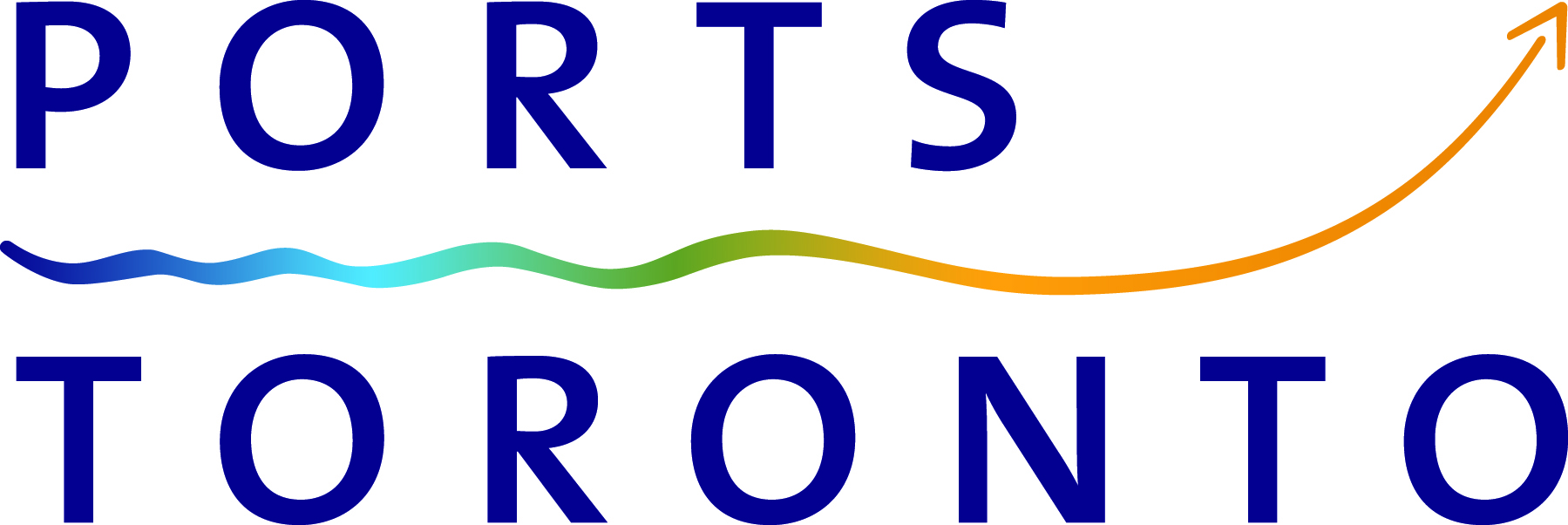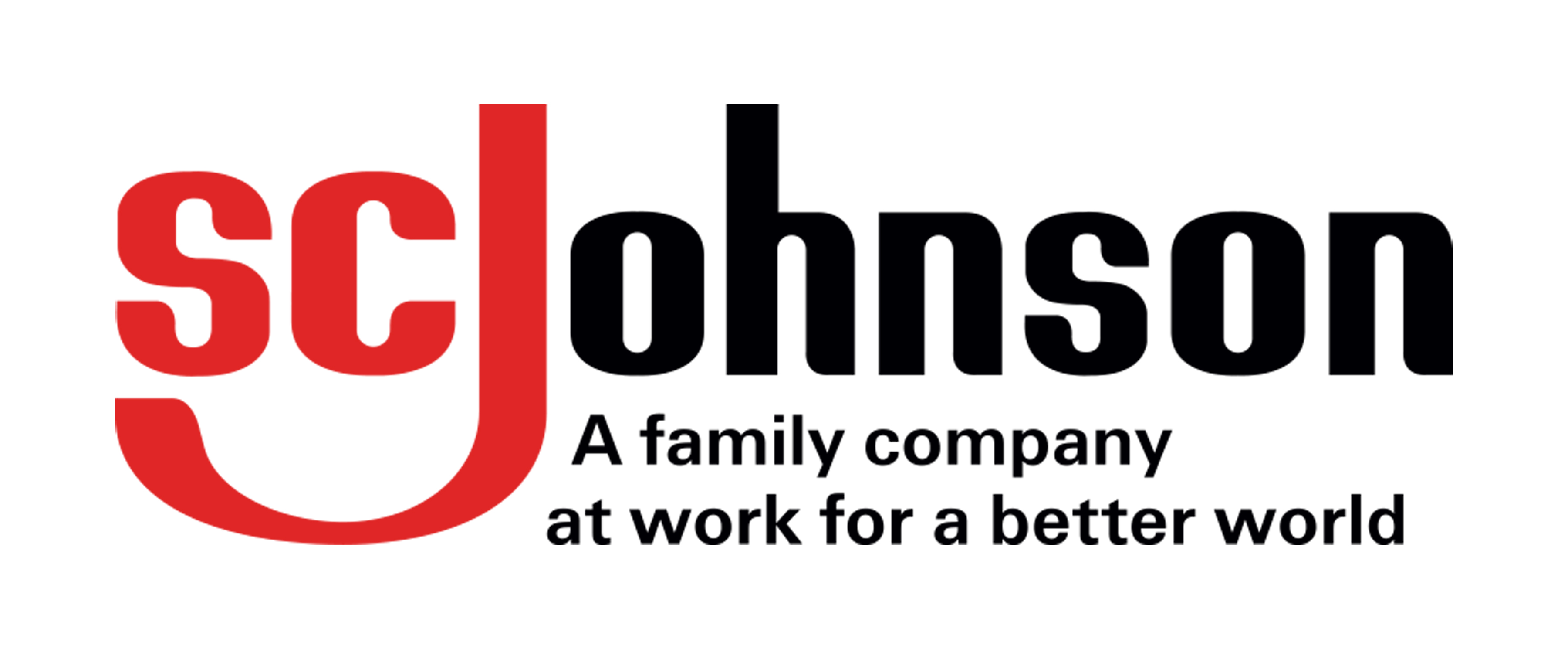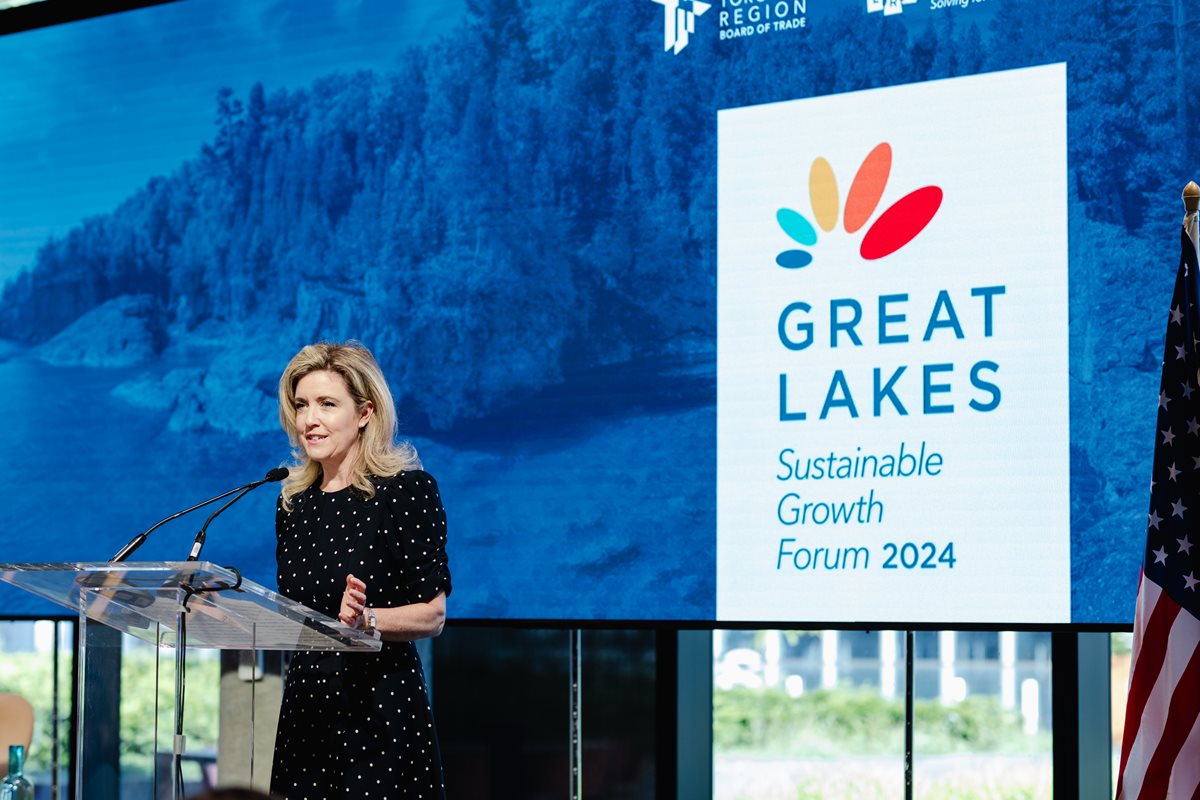
For three days in late June, the Toronto Region Board of Trade, in partnership with the Council of the Great Lakes Region (CGLR), hosted the Great Lakes Sustainable Growth Forum. This landmark event brought together leaders from across sectors to address pressing challenges and opportunities in one of North America's most vital economic regions.
A Region of Immense Importance
Spanning eight U.S. states and two Canadian provinces, the Great Lakes and St. Lawrence region is an economic powerhouse with an annual GDP exceeding 8 trillion Canadian dollars. This region accounts for over 50% of the two-way trade between the United States and Canada, positioning it as the world’s third-largest economy with an annual GDP of 6 trillion USD. Central to the region are the Great Lakes and the St. Lawrence River, the planet’s largest freshwater system. With this in mind, our President & CEO, Giles Gherson opened the forum by saying, "the task is to ensure our region remains a competitive force in the global economy... The path forward is greater connectivity and greater partnership. And more infrastructure to support our critical transportation and shipping needs."
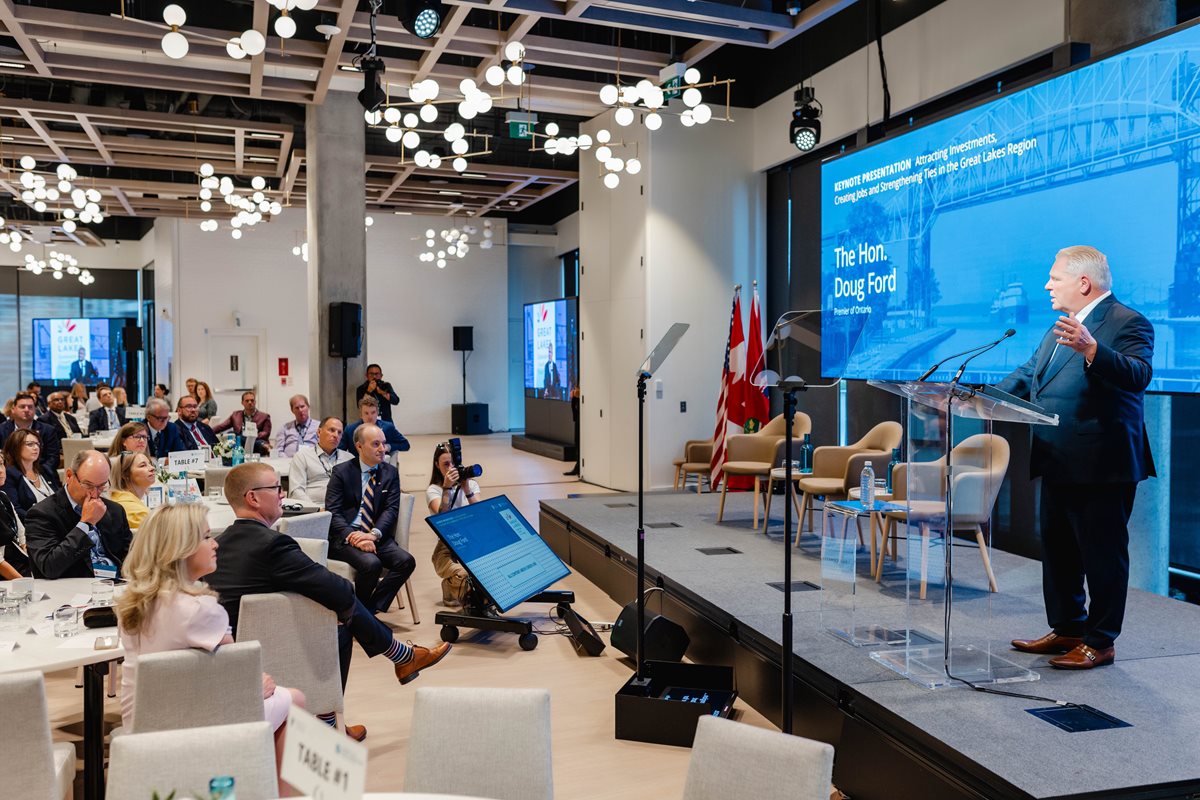
Premier Doug Ford picked up on this theme, advocating for a regional approach to economic and environmental collaboration. Ford stated, “We need to shift our thinking. I’m guilty of saying ‘buy Canada, buy Ontario.’ We're going to change that phrase to 'buy North America,' because if it comes down to it, it's us versus the rest of the world. And we're so much stronger when we work together."
CUSMA Panel Discussion: Future-Proofing Trade
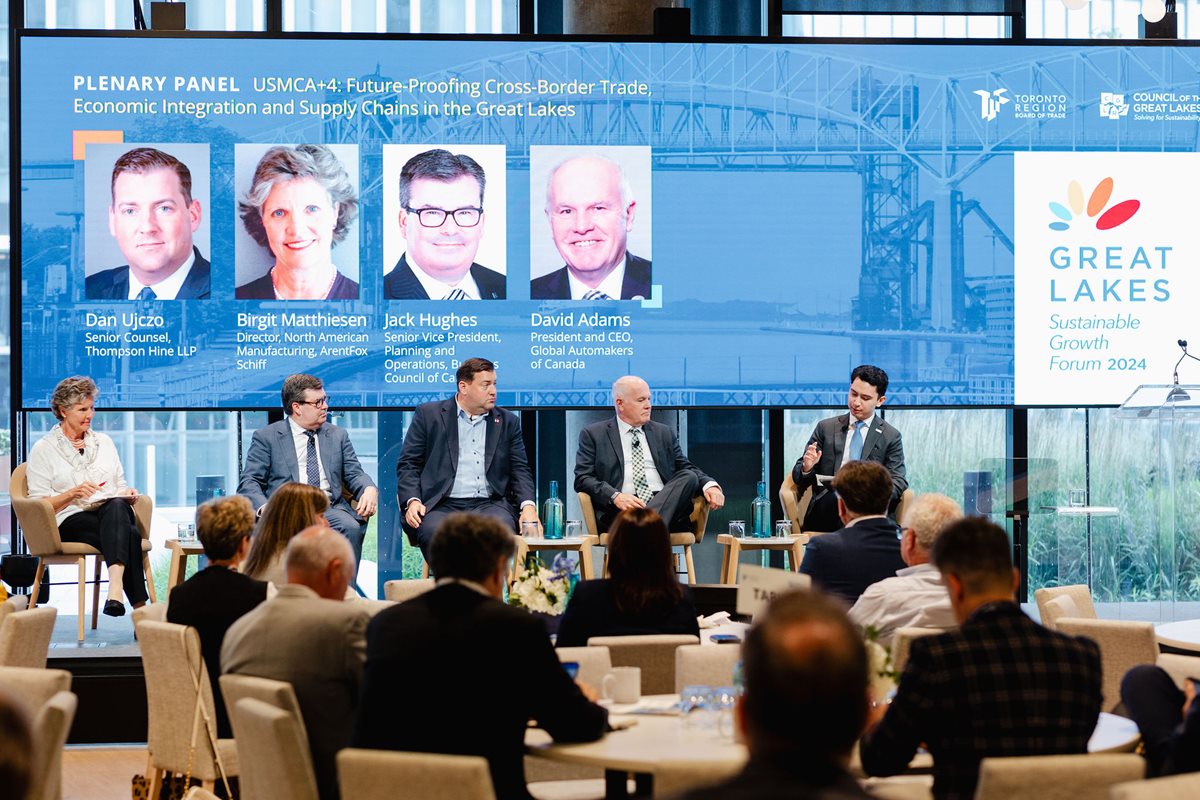
The Forum featured a panel on the future of the United States-Mexico-Canada Agreement (CUSMA). Panelists emphasized CUSMA has provided stability and predictability for businesses, particularly in the automotive sector, which is crucial for the Great Lakes region. The agreement has supported the expansion of trade, investment, and jobs across North America, while also delivering outcomes beneficial to workers and broader society. However, the conversation also raised concerns about potential renegotiations and changes that may come with the upcoming review. Key points of discussion included:
- The need for businesses to prepare for the 2026 review by engaging with policymakers and understanding potential impacts on their industries.
- Opportunities for strengthening North American competitiveness, particularly in areas like electric vehicles, semiconductors, and clean energy.
- The importance of addressing ongoing trade irritants and disputes to maintain the agreement's effectiveness.
- Potential challenges arising from changing political landscapes in all three countries, with elections upcoming in the U.S. and Mexico.
- The need to balance protectionist tendencies with the benefits of integrated North American supply chains.
Panelists stressed that stakeholders should not wait until 2026 to engage in discussions about CUSMA’s future. They encouraged businesses, especially small and medium-sized enterprises, to understand how potential changes might affect them and to make their voices heard in the review process.
Other Key Themes and Discussions
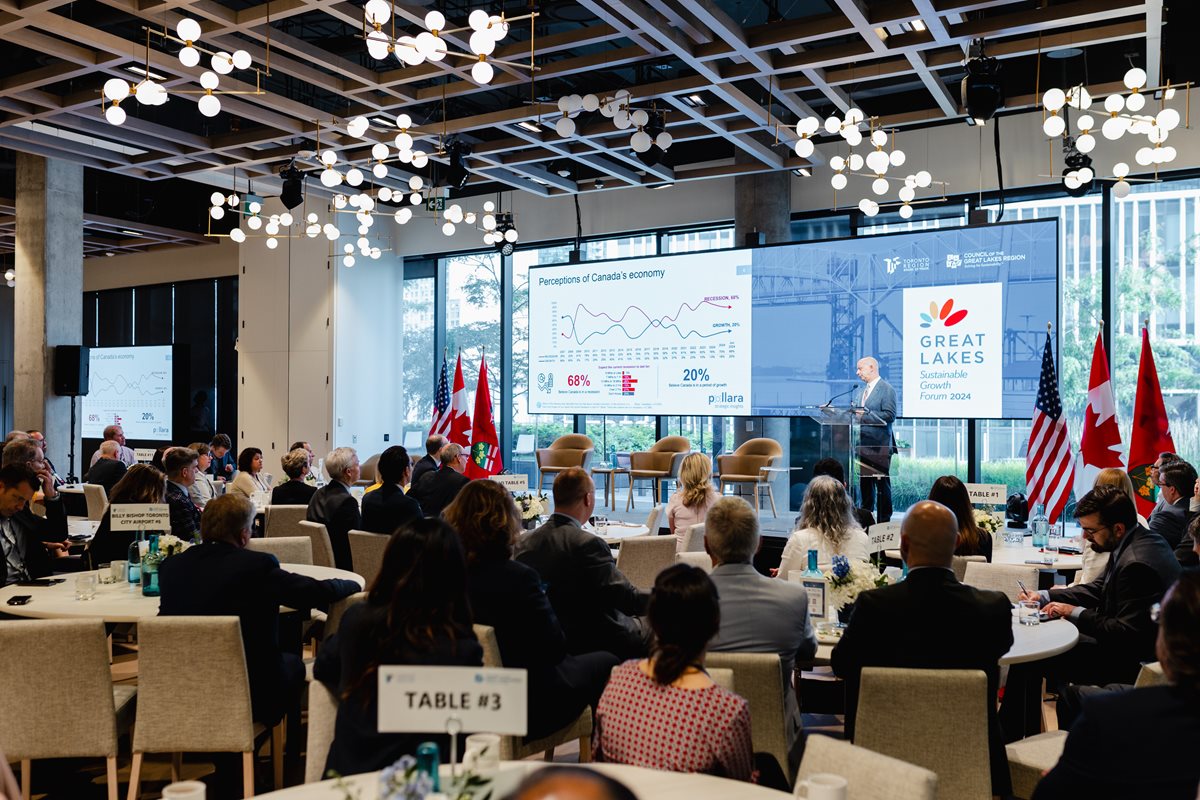
With the goal of bringing the economy and environment closer together, The Great Lakes Sustainable Growth Forum covered a wide range of topics crucial to the region's sustainable development:
- Economic Renaissance: Discussions on driving regional innovation, business growth, and job creation. Mark Fisher, President and CEO of CGLR, noted, "There's no doubt we can build the first truly sustainable economy."
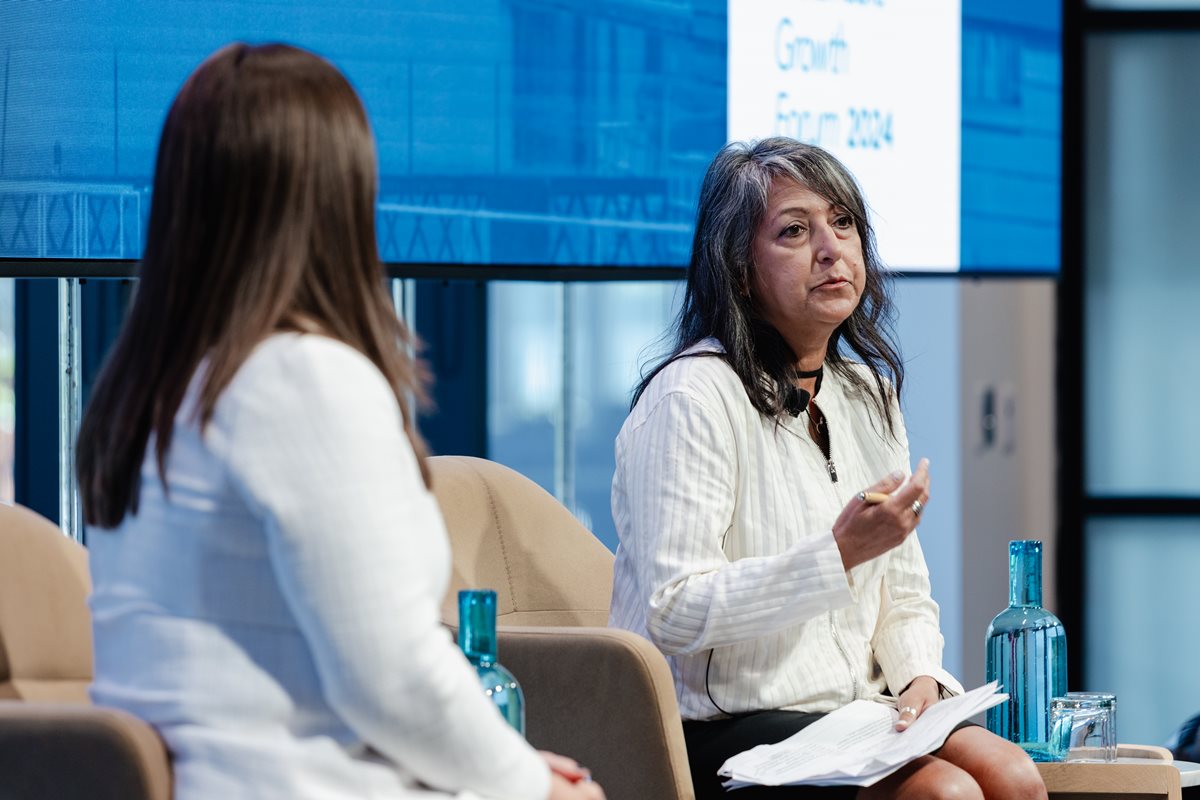
- Sustainable Finance: Exploring challenges and opportunities in financing sustainable initiatives. Peter Johnson, director of Sustainable Finance at Scotiabank Global Banking and Markets, discussed the evolution of traditional finance policies into those that calculate environmental attributes.
- Water Stewardship: Focus on protecting and enhancing the region's vast freshwater resources.
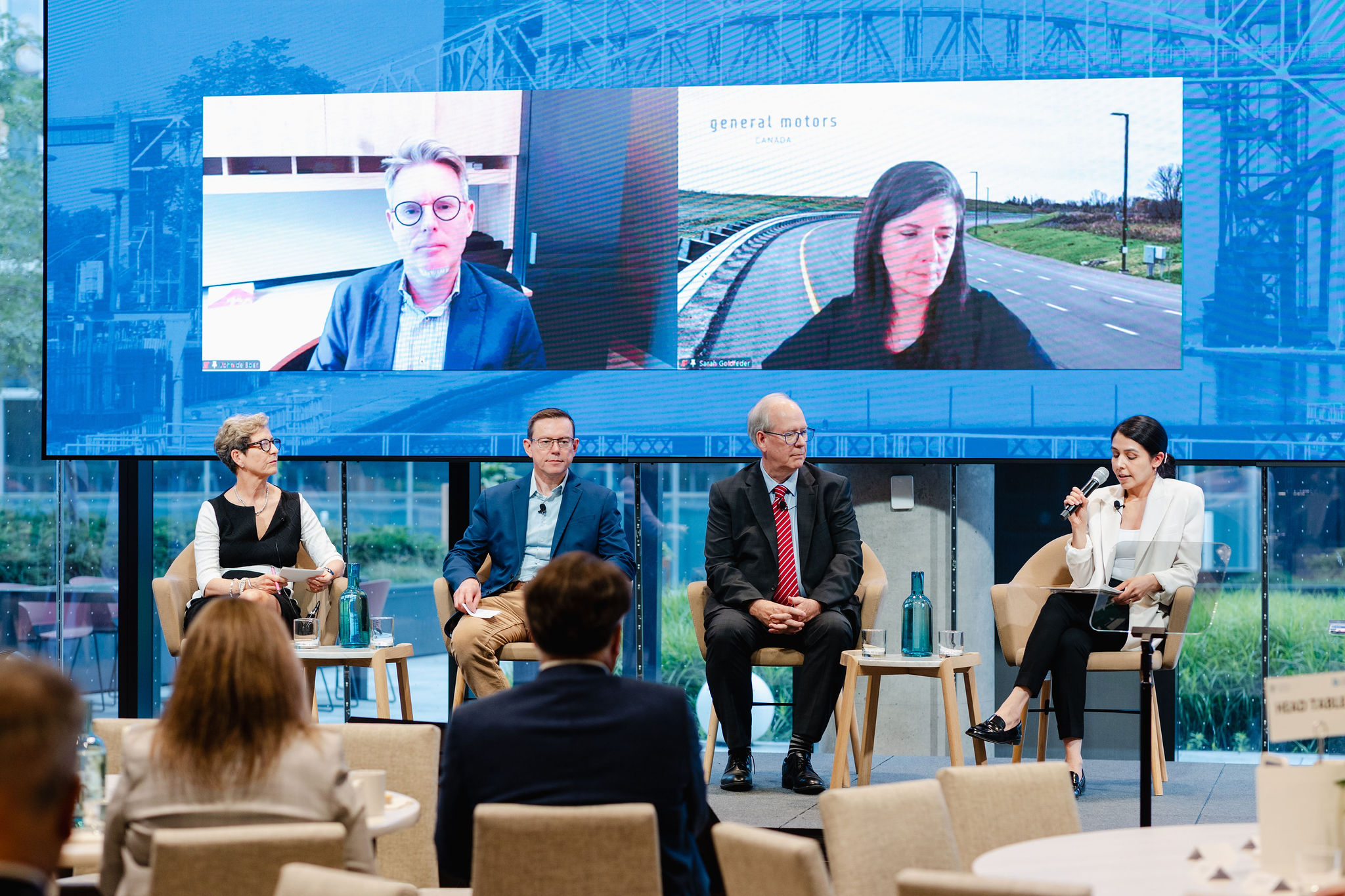
- Regenerative Agriculture: Exploring how the region could lead a global revolution in sustainable farming practices.
- Climate Action: Addressing environmental challenges and promoting ecosystem restoration. Anthony Kane, president and CEO of the Institute for Sustainable Infrastructure, discussed how raising codes and standards can help pave the way for sustainable development.
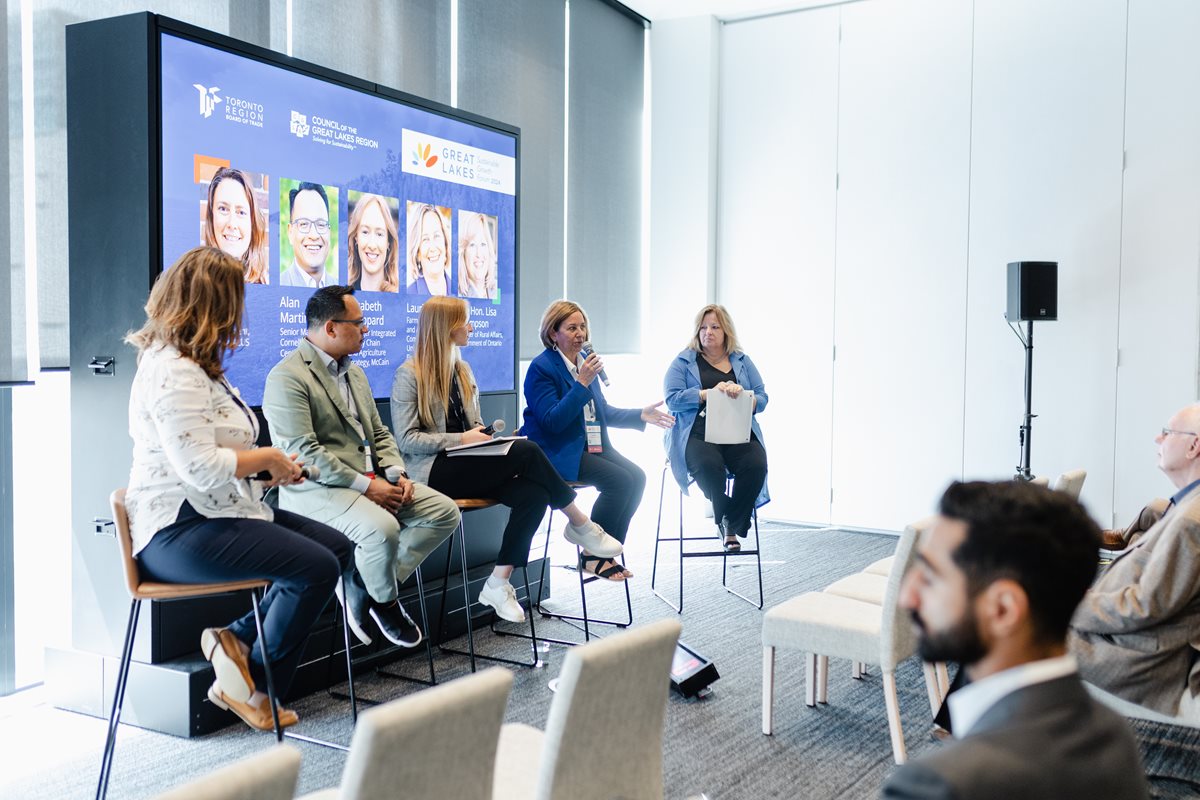
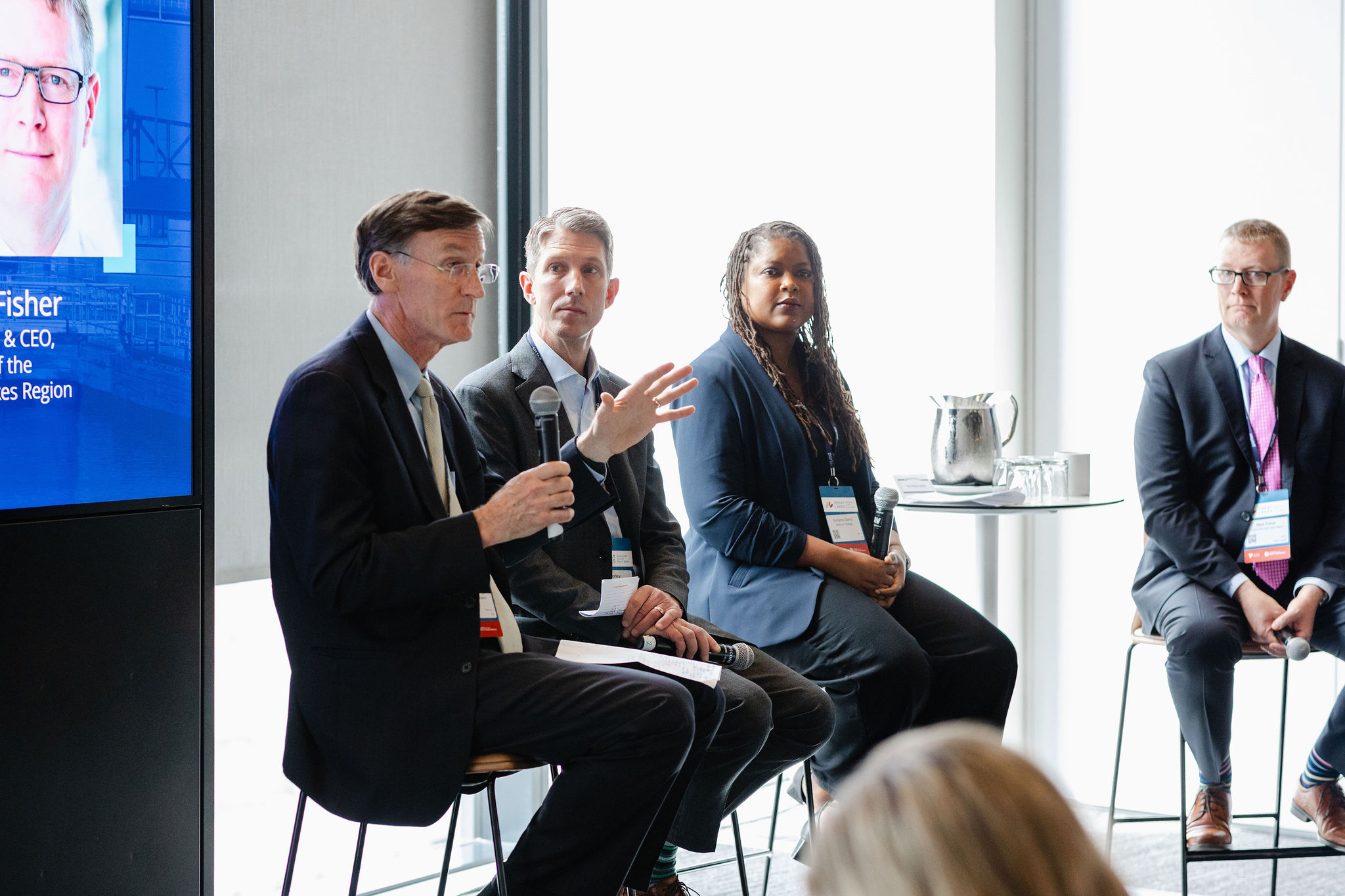
The manufacturing sector's resurgence was also a major highlight. Ontario and neighbouring Great Lakes states have attracted significant investments from automotive giants like General Motors, Ford, Honda, Toyota, and others, signaling the region's growing importance in sustainable and innovative transportation solutions.
Bringing the Economy and the Environment Closer Together
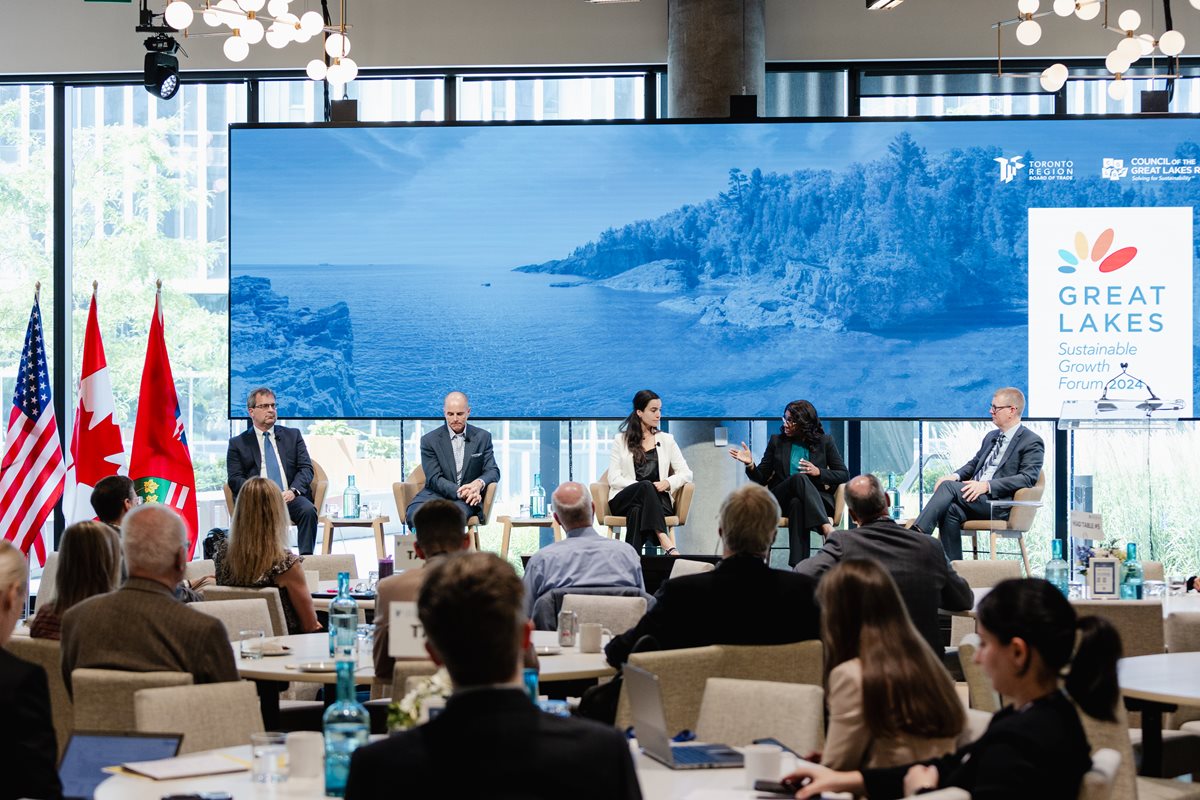
Bob Rae, Canada's Ambassador to the United Nations, provided a compelling overview of the UN Sustainable Development Goals (SDGs), explaining their origins and significance. He remarked, "When we started, there were 52 countries outside the original San Francisco agreement. Now, there are 193. The introduction of a truly universal body has made development a central issue at the UN."
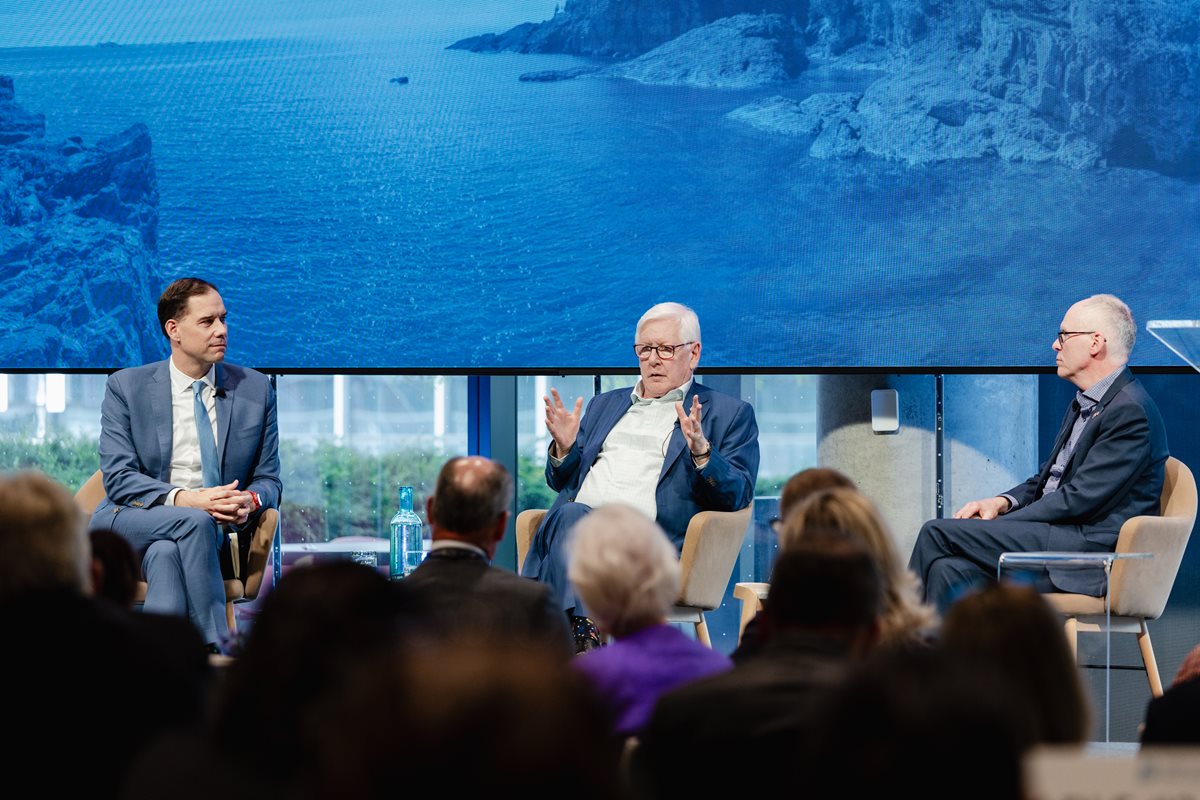
Rae emphasized the necessity of the SDGs: "These goals are about creating a set of metrics to measure our progress on issues ranging from health and well-being to economic prosperity and environmental sustainability. They apply to all countries, including developed nations like Canada."
Rae also highlighted the importance of local implementation: "The SDGs are not controlled by the UN but depend on member states and regions. This makes our conversation here vital, as we in the Great Lakes region have tremendous wealth, a diverse economy, and significant environmental challenges."
MOU Signing: A Milestone for Regional Collaboration
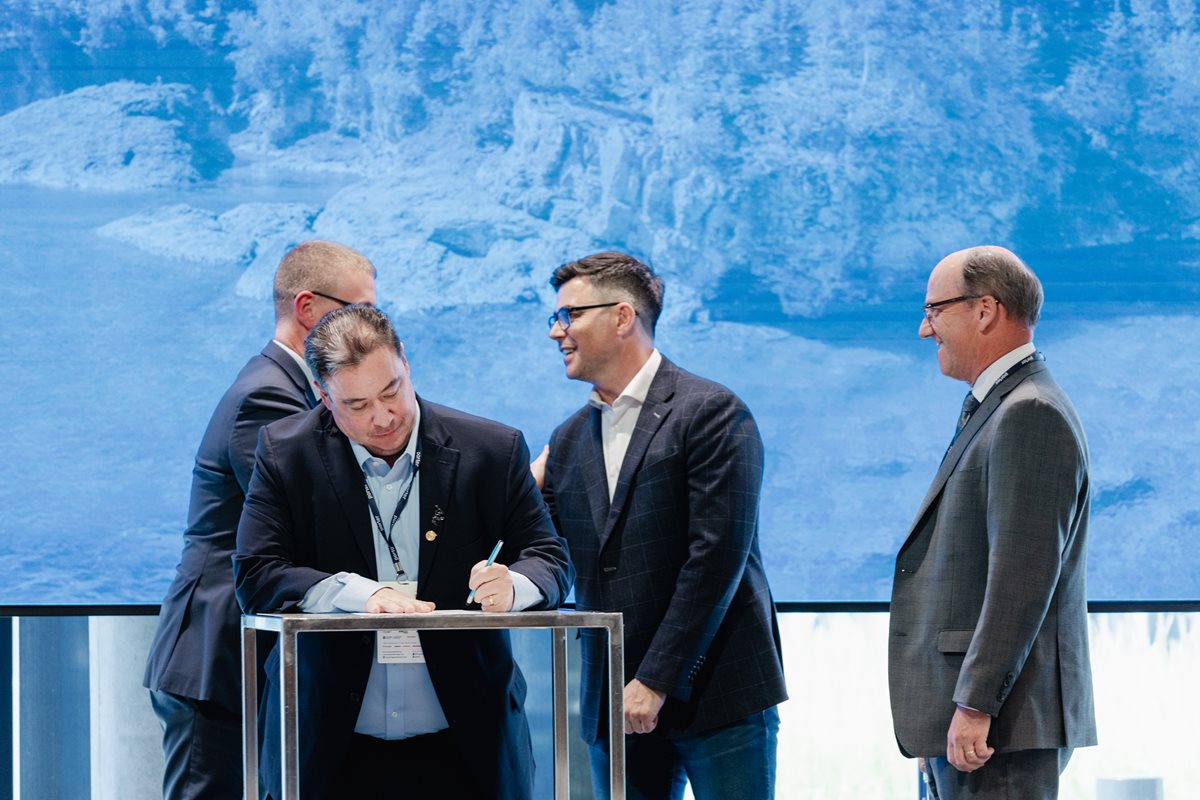
On the final day of the forum, a significant Memorandum of Understanding (MOU) was signed between the Great Lakes and St. Lawrence Cities Initiative (GLSLCI) and the Council of the Great Lakes Region (CGLR). Cobourg Mayor Lucas Cleveland, representing GLSLCI, and Brian Ames, Chair of the Board of Directors for CGLR, were the signatories. This partnership aims to guide the economic transformation of the Great Lakes and St. Lawrence region over the next 12 months, focusing on:
- Fostering sustainable economic growth by promoting regional and local innovation, business growth, and job creation.
- Protecting and enhancing freshwater resources to ensure the health and sustainability of the Great Lakes and St. Lawrence River.
- Promoting collaborative governance of economic issues by engaging a diverse network of stakeholders to create more economic growth and sustainable development.
- Advancing research and innovation through leveraging academic and research institutions to support economic and environmental objectives.
Looking Ahead
The Great Lakes Sustainable Growth Forum 2024 set the stage for continued collaboration and action. Mark Fisher, CEO of CGLR, stated this forum represents a crucial step towards balancing economic growth and environmental stewardship dynamically, ensuring the Great Lakes-St. Lawrence region remains a vibrant and competitive area for generations to come.
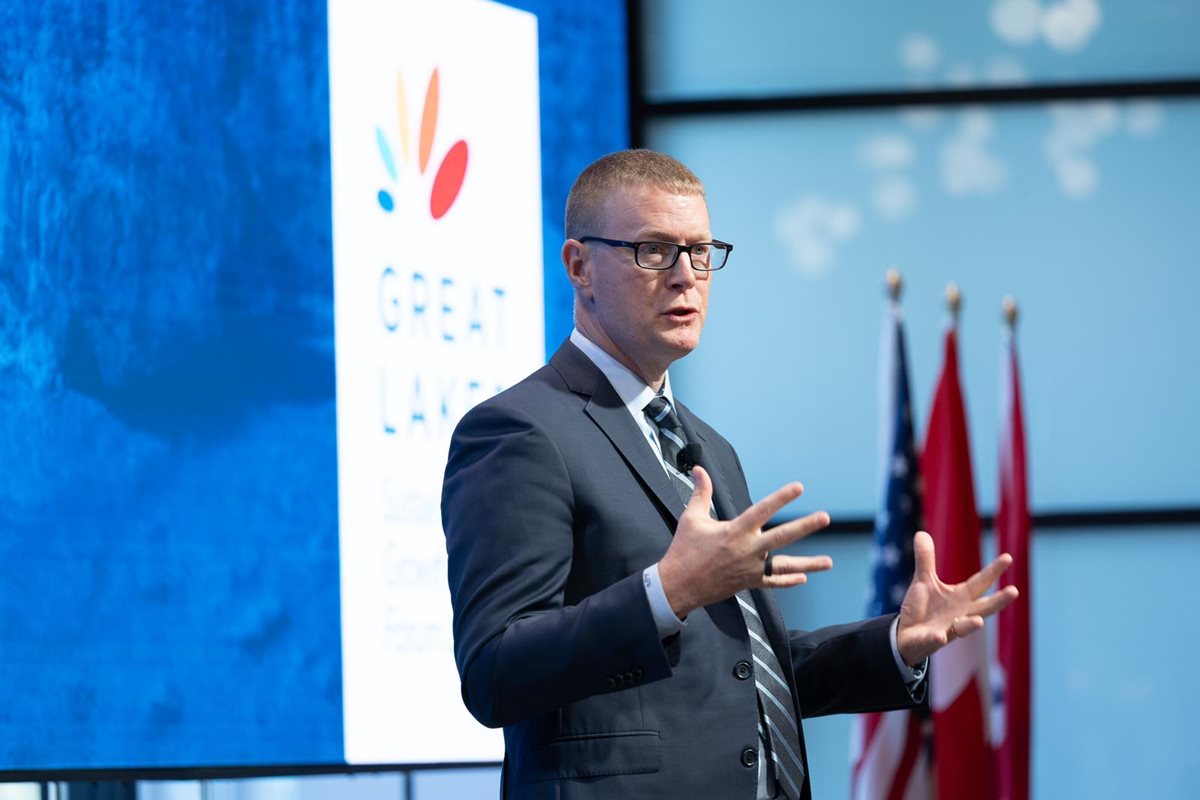
The success of this year's forum underscores the importance of continued dialogue and cooperation across borders and sectors. As the region faces both challenges and opportunities in the coming years, initiatives like the Great Lakes Sustainable Growth Forum will play a vital role in charting a course towards a sustainable and prosperous future for all who call this remarkable region home.
Thank you to our partners who helped make this event a success:

